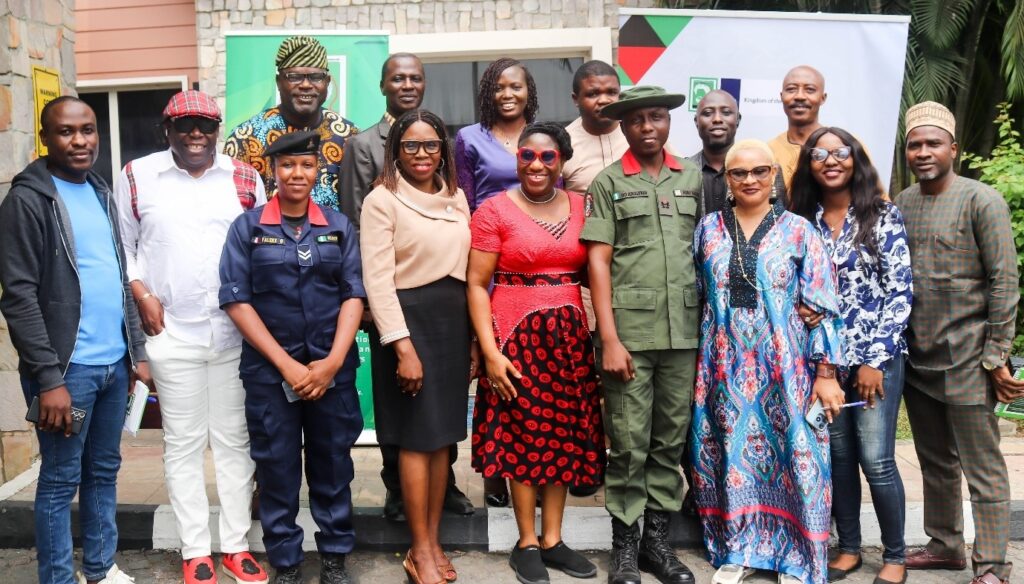EDITORIAL: We demand for more condusive civic space for the media, civil society organisations, individuals and others.
In a democratic system like Nigeria’s, which has been in place since 1999, press freedom should be sacrosanct. Journalists must be able to carry out their duties—holding the government, authorities, and individuals accountable—without fear of intimidation or restriction, as guaranteed by the constitution.
A truly open civic space allows the media, civil society organisations, and individuals to express their views without the threat of attacks for merely performing their responsibilities or exercising their right to free speech. However, despite Nigeria no longer being under military rule—historically associated with authoritarian crackdowns—journalists and civic actors continue to face various forms of repression.
The 2023 Journalism and Civic Space Status Report by the Wole Soyinka Centre for Investigative Journalism (WSCIJ), presented at a recent Stakeholders’ Conversation in Lagos, paints a grim picture of press freedom and the shrinking civic space in Nigeria.
According to key findings from 134 monitored reports across 32 media outlets, WSCIJ Executive Director Motunrayo Alaka highlighted a surge in civic space violations during the 2023 election period. The peak of these infringements occurred between February and March (general elections) and November (off-cycle elections in Bayelsa, Imo, and Kogi).
The report revealed that 64% of documented cases (86 incidents) were violent, including physical assaults and fatalities, while 36% (48 cases) were non-violent, involving access restrictions and regulatory sanctions. Journalists bore the brunt of these attacks, with 44 recorded cases—41 of which occurred while they were on duty—emphasising the risks they face.
The WSCIJ’s unwavering commitment to tracking these violations and advocating for a safer civic space is commendable. Its reports serve as a crucial tool for highlighting abuses and demanding necessary reforms to protect press freedom and civic engagement.
Government officials often claim that the media and civil society operate freely, but the data in these reports contradicts such assertions. The documented incidents provide irrefutable evidence that journalists and civic actors still face significant obstacles, making it imperative for authorities to create a more enabling environment for free expression.
Beyond the WSCIJ’s findings, other independent assessments confirm Nigeria’s poor record on press freedom. The 2024 Reporters Without Borders ranking identifies Nigeria as one of the most dangerous and restrictive countries for journalists in West Africa, citing frequent attacks, surveillance, and arbitrary arrests, particularly during the 2023 elections.
Similarly, Freedom House’s “Freedom in the World 2024” report notes that while Nigeria has a vibrant media landscape, it is undermined by criminal defamation laws, harassment, and arrests of journalists covering politically sensitive issues.
We echo the calls made at the WSCIJ Stakeholders’ Conversation for stronger alliances between the media and civil society organisations (CSOs) to counter these attacks. A unified coalition will offer more robust resistance to government agencies and officials who disregard press freedom and civic rights. Instead of affected groups protesting in isolation, a collective front will ensure these concerns receive greater attention.
Additionally, security officers who violate press freedom and civic rights must be held accountable. The government must back its claims of supporting press freedom with tangible actions by ensuring that offenders are prosecuted rather than allowed to act with impunity.
While we agree that journalists should improve their understanding of legal provisions, state actors must also stop weaponising the Cybercrime Act to intimidate or detain journalists over frivolous complaints. Laws should not be used as tools for repression but should instead uphold the democratic principles that Nigeria claims to champion.
A free press and an open civic space are the hallmarks of a thriving democracy. Without them, accountability and good governance are at risk.
READ MORE EDITORIALS
EDITORIAL: Recognising excellent performance

